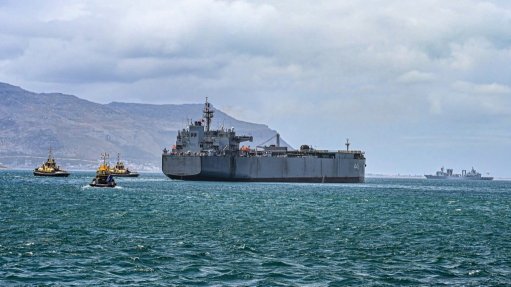Electric cars: a real good thing?
When I was young, our family would go to the Natal South Coast on holiday. The roads were not great; so we would have to stay overnight halfway to Durban. At holiday times, there was a lot of traffic and sometimes the going was slow.
Recently, Gregg and I went up the Garden Route on a project. The previous Thursday had been a holiday and many people had taken a long weekend. Coming back to Cape Town, there was a queue of cars stretching back 50 km from the Cape Town city centre. I did some calculations and came to the conclusion that if, in the future, the holiday traffic was mostly electric cars, say, 40 000 of them, then, if each car had to be charged somewhere on the Garden Route, the electrical load on the Garden Route would increase by about 80 MW.
This is no small amount and, on a detail scale, the local electrical effect on some small villages would be fairly substantial in proportion to the normal load. However this is calculated, if an electrical car has to be charged to run the next 500 km or so, the electrical load will occur. The electrical supply can be reinforced to accommodate this load, but this is a losing proposition, since, if you have an electrical system with a large capacity only fully loaded during the holidays, it is a poor return on investment.
The scenario I have sketched applies to all holiday destinations that people currently visit using fossil-fuel motor vehicles – the Kruger Park, the KwaZulu-Natal coast, and so on.
It happens that some European countries, such as Norway, intend banning internal-combustion-engine vehicles by 2025. There may be a thought that this should happen in South Africa, but it can’t. The distances in Europe are nothing like those in South Africa – from Paris to Lyon, in France, for example, is about the same distance as Cape Town to Kimberley. It is very difficult to make a round trip in an electric car without a charge – as much as it is difficult to travel more than 500 km in an internal-combustion car without refuelling.
We should thus be driven to the conclusion that the electric car, while notionally desirable, carries with it some infrastructure penalty if it has to be electrically recharged. I know that there are those out there who will say, well, let it be, it reduces pollution. Well, not so. It just takes the pollution gases from the exhaust pipe of the cars to the chimney stack of the power station.
The answer is one step further. Yes, we must have electric cars; however we must rethink how we are going to charge them. One way would be to run them on fuel cells, which use hydrogen that could be derived from a catalytic reaction. Sounds complicated, I know, but definitely achievable. It would cost quite a bit initially, but this can be recovered.
Another way would be to just run the electric cars using a battery where the recharging takes the form of topping up or replacing the electrolyte. I am not sure if this technology exists but I have done some calculations and I am sure it will work. This latter idea will rely on electrodes wearing out and having to be replaced but, like brake shoes, this is hardly an issue.
The biggest electric car problem we have is the drive by companies such as Tesla to define the engineering of the electric car. The current versions are really not very well thought out in many ways, especially in the matter of the primary power source. Tesla may well say, oh, we cannot afford to do research and development on this. If it said so, one could ask how much the SpaceX programme costs. We are close, but the electric car is not there yet.
Article Enquiry
Email Article
Save Article
Feedback
To advertise email advertising@creamermedia.co.za or click here
Comments
Press Office
Announcements
What's On
Subscribe to improve your user experience...
Option 1 (equivalent of R125 a month):
Receive a weekly copy of Creamer Media's Engineering News & Mining Weekly magazine
(print copy for those in South Africa and e-magazine for those outside of South Africa)
Receive daily email newsletters
Access to full search results
Access archive of magazine back copies
Access to Projects in Progress
Access to ONE Research Report of your choice in PDF format
Option 2 (equivalent of R375 a month):
All benefits from Option 1
PLUS
Access to Creamer Media's Research Channel Africa for ALL Research Reports, in PDF format, on various industrial and mining sectors
including Electricity; Water; Energy Transition; Hydrogen; Roads, Rail and Ports; Coal; Gold; Platinum; Battery Metals; etc.
Already a subscriber?
Forgotten your password?
Receive weekly copy of Creamer Media's Engineering News & Mining Weekly magazine (print copy for those in South Africa and e-magazine for those outside of South Africa)
➕
Recieve daily email newsletters
➕
Access to full search results
➕
Access archive of magazine back copies
➕
Access to Projects in Progress
➕
Access to ONE Research Report of your choice in PDF format
RESEARCH CHANNEL AFRICA
R4500 (equivalent of R375 a month)
SUBSCRIBEAll benefits from Option 1
➕
Access to Creamer Media's Research Channel Africa for ALL Research Reports on various industrial and mining sectors, in PDF format, including on:
Electricity
➕
Water
➕
Energy Transition
➕
Hydrogen
➕
Roads, Rail and Ports
➕
Coal
➕
Gold
➕
Platinum
➕
Battery Metals
➕
etc.
Receive all benefits from Option 1 or Option 2 delivered to numerous people at your company
➕
Multiple User names and Passwords for simultaneous log-ins
➕
Intranet integration access to all in your organisation


















